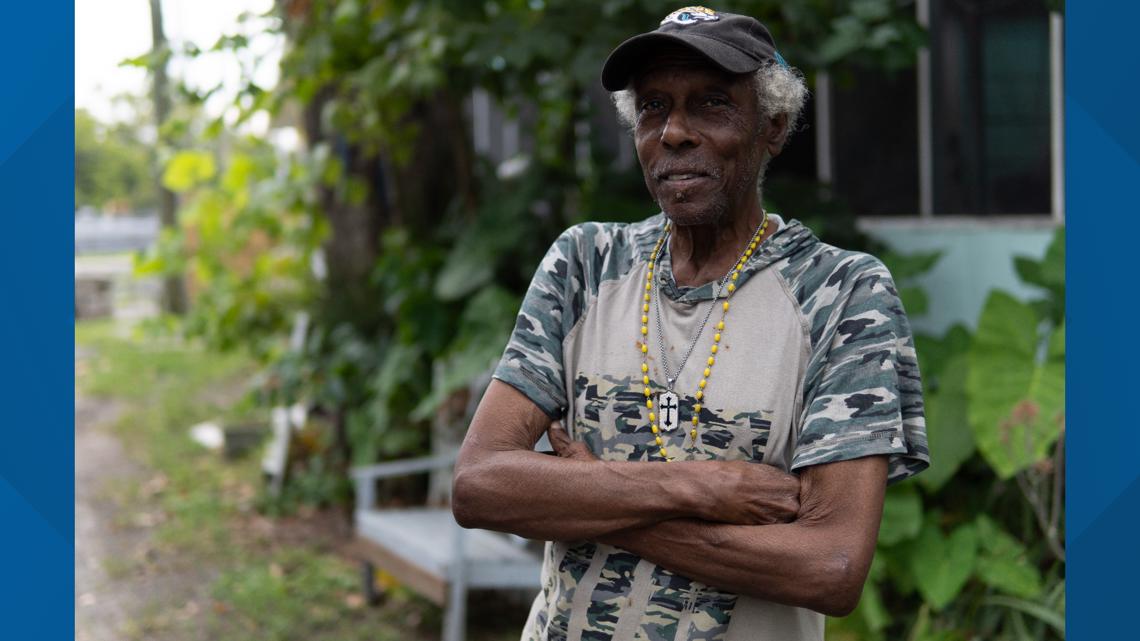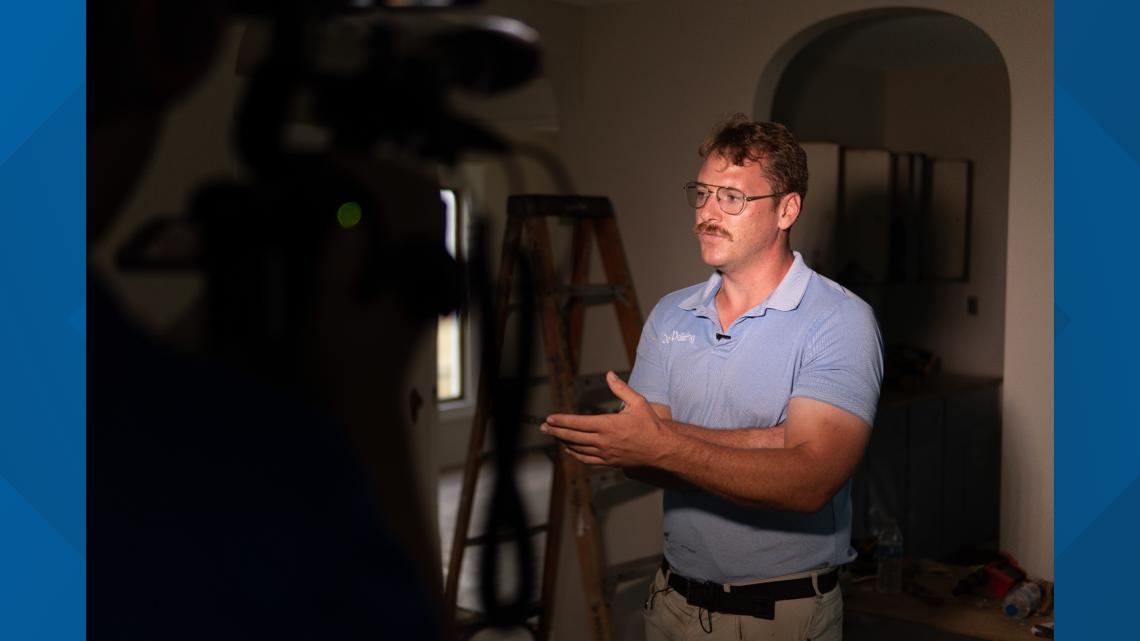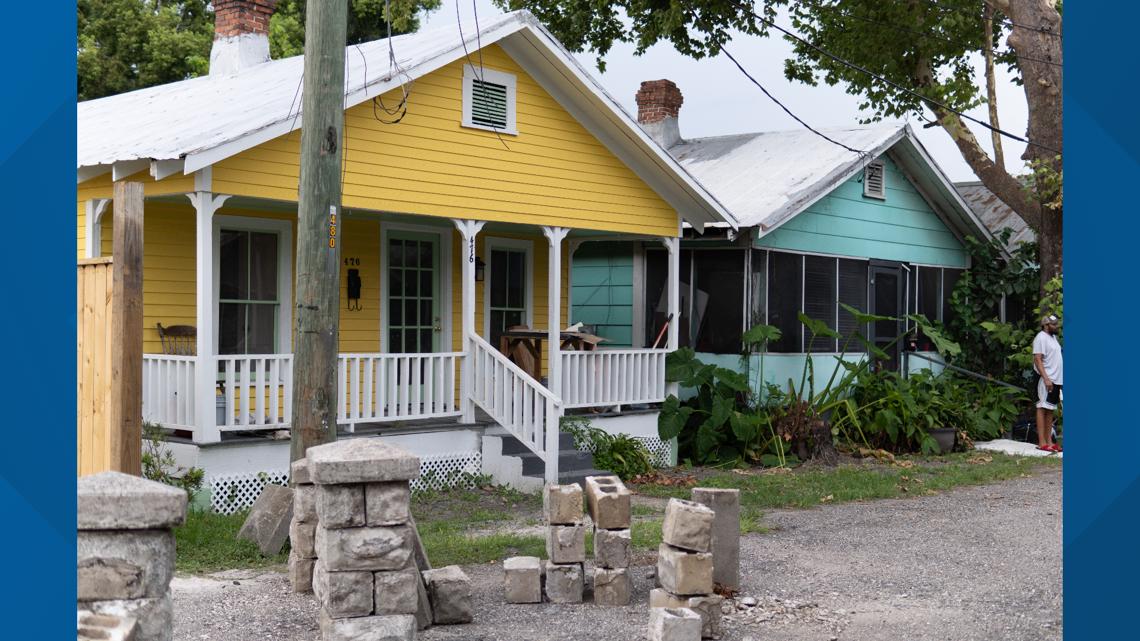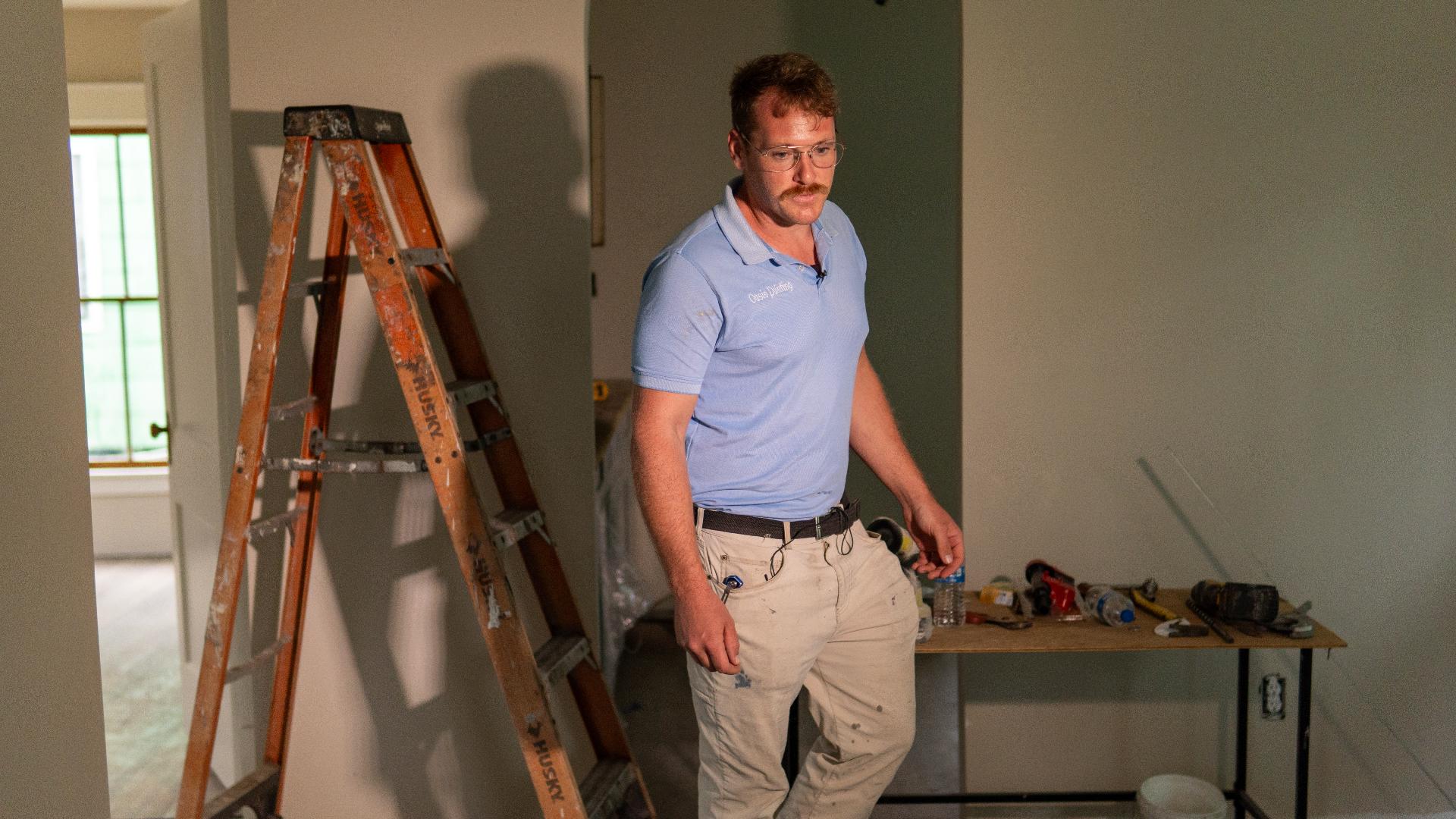JACKSONVILLE, Fla. — Spencer Fletcher frequently drives down Edison Avenue in Mixon Town, but he never noticed what was hidden behind the thick tree line.
"The brush and the tree line had not been maintained in so long that it sort of covered the entire development," Fletcher said. "I noticed it and fell in love with it, I thought it was pretty cool."
The Navy veteran discovered a small community of homes called the Oneida Bungalow Court -- a row of more than two dozen homes so close that people could reach out of their windows and shake their neighbors' hand.
Fletcher bought the property a year and a half ago with the goal of restoring the homes.
“I think that's a real very good idea," neighbor, Willie Stokes, said.
Fletcher wants to keep longtime neighbors, like Stokes.
“One time it used to be nothing but drugs in here," Stokes said.
He said the bungalows have come a long way and believes Fletcher will take it even further.
“If he does all of them like that, this would be a nice neighborhood," Stokes said.


"We do a lot of beautiful restoration work in Riverside and Avondale and Springfield, but what about West Lewisville? What about neighborhoods like this?" Fletcher said. "You know, LaVilla, for instance, this is the last concentration of houses left in West Lewisville. You know, that's, that's a pretty big thing to think about."
The homes are located in Mixon Town, formerly known as West Lewisville, one of the city's historic Black neighborhoods.
"This was a thriving community at one time with hundreds of houses very similar to this, and these are the only ones that are left," Fletcher said. "So culturally, historically, there's a lot of value there."
He said the homes were built around the mid 1920s and each house had oil burning heat in each bedroom.
“The house needs a lot of work," Fletcher said while looking inside one of the homes.
He's poured $1.7 million into the project, which yielded the purchase of the property, cleanup, and one partially renovated home.
"I've exhausted a lot of my resources, personal resources here...I'm going to hold on to it, I'm going to make sure it gets done. But it might take 25 years," Fletcher said.


Fletcher believes the project is one the City of Jacksonville should get behind, but said getting grant money has been a challenge.
“I've made some applications, and I've certainly done some digging," Fletcher said. "It's been a year and a half of me begging. And it's almost out of reach for somebody like me."
Because the bungalows are not a low-income housing project, the city said federal and local funding are limited.
The city said Fletcher applied for grant money through the city's Emergency Rental Assistance Program (ERAP). But the area median income of people living in the area of the bungalow project did not meet requirements set by the U.S. Department of Treasury.
It said the two sides have been in touch about other financing options and the city believes the Oneida Bungalow Court is an important project.
District councilmember Jimmy Peluso is a believer in the project, but said funds for a project like this are a challenge.
“It's all about kind of either creating something new or figuring out how the city can be a partner or get involved in this," Peluso said. "And that's, that seems to be the hiccup."
In addition to the restoration of the homes, Fletcher hopes to improve infrastructure, like drainage and sidewalks in the area.
The city said the neighborhood is in Health Zone 1, an area where life expectancy lags behind 10-15 years. It says it's placed added weight on Capital Improvement Plan (CIP) projects that positively address the social determinants of health in areas where the project is performed – because there is a direct correlation between quality of infrastructure and quality of health.
The city said Fletcher should work with Peluso to identify projects to be included in the CIP.
Fletcher hopes the bungalows, which are cast in the shadow on Downtown Jacksonville, are given a chance.
“Here we have the opportunity to save this last vestige of one of the oldest African American neighborhoods in the City of Jacksonville. We should do that," Fletcher said.



